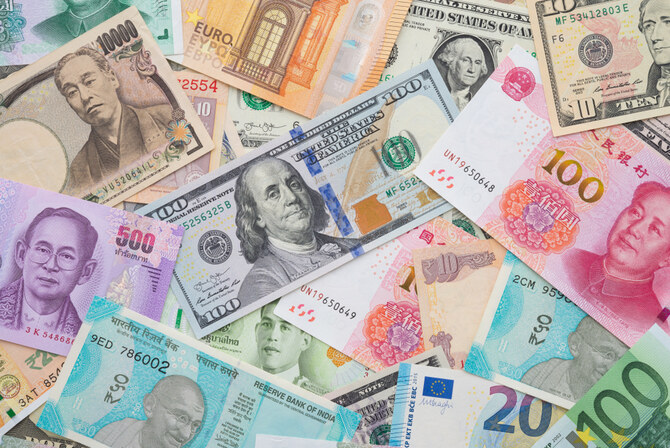RIYADH: Saudi Arabia’s official reserve assets reached SR1.76 trillion ($469.83 billion) in August, the highest in 21 months and a 10 percent increase year-on-year, according to recent data.
Figures released by the Saudi Central Bank, known as SAMA, show these holdings include monetary gold, special drawing rights, the International Monetary Fund’s reserve position, and foreign reserves.
The latter, comprising currency and deposits abroad as well as investments in foreign securities, made up 95 percent of the total, amounting to SR1.67 trillion in August. This category led the growth with 10.62 percent increase during this period.
August data also showed that special drawing rights, making up 5 percent of the total at SR79.35 billion, increased by 2 percent.
Created by the IMF to supplement member countries’ official reserves, SDRs derive their value from a basket of major currencies, including the US dollar, euro, Chinese yuan, Japanese yen, and British pound sterling. They can be exchanged among governments for freely usable currencies when needed.
SDRs provide additional liquidity, stabilize exchange rates, act as a unit of account, and facilitate international trade and financial stability.
The IMF reserve position totaled around SR13 billion, but decreased by 9 percent during this period. This category represents the amount a country can draw from the IMF without conditions.
Saudi Arabia’s reserves, which include foreign exchange holdings, are among the highest in the world. According to Fitch Ratings, the Kingdom’s reserve coverage ratio, as of February, stood at 16.5 months of current external payments.
This high ratio is a testament to the Kingdom’s ability to meet its external financial obligations for an extended period, ensuring that the country remains resilient in the face of global economic uncertainties.
This also serves as a financial buffer, enabling it to navigate external pressures, such as fluctuations in oil prices, geopolitical tensions, or shifts in global market dynamics.
They also also play a key role in enhancing investor confidence in Saudi Arabia’s economy, as they signal the government’s capacity to meet its obligations and maintain economic stability.
For international investors, the combination of high reserves, a diversified economy, and strong fiscal management make Saudi Arabia an attractive destination for investment.
In addition to its fiscal strength, Saudi Arabia benefits from a high level of government and debt ratings which allow the Kingdom to access global capital markets with ease, raising funds through bond issuances and sukuk at competitive rates.
This financial flexibility ensures that the country can continue to finance its ambitious Vision 2030 projects, such as NEOM, the Red Sea Project, and the development of new urban centers, without disrupting its overall economic stability.
Saudi Arabia is undergoing a transformative expansionary strategy as part of its Vision 2030 framework, which seeks to diversify the nation’s economy away from its heavy reliance on oil revenues.
Sectors such as tourism, technology, infrastructure, and renewable energy are considered pivotal to the Kingdom’s long-term economic stability and require substantial investment to meet the Vision’s targets.
As a result, government expenditures have risen significantly in recent years, and forecasts suggest the possibility of a fiscal deficit in the medium term as spending continues to expand.
Despite these spending challenges, Saudi Arabia is in a strong fiscal position. The Kingdom’s favorable government and debt ratings, combined with substantial foreign reserves, allow the country to manage the increased expenditures and potential deficits effectively.
Saudi Arabia has ample room to raise debt through various financial instruments, such as bonds and sukuk, to fund its large-scale development projects without encountering significant financial stress.
This capability has been further supported by the government’s prudent fiscal management, which continues to focus on maintaining the country’s overall economic health while ensuring that Vision 2030 projects are adequately financed.
The Ministry of Finance, in its pre-budget 2025 report, emphasized that the government intends to take advantage of favorable market conditions to implement alternative financing activities that can stimulate economic growth.
The strategy behind this approach is not only to provide the necessary funding for key projects but also to diversify the Kingdom’s financing channels.
By doing so, the government aims to maintain market efficiency, deepen its financial markets, and attract new investors, both domestically and internationally.
Moreover, the government’s fiscal policy is designed to strengthen its financial position by maintaining safe levels of reserves, which are essential for protecting the economy against external shocks.


















